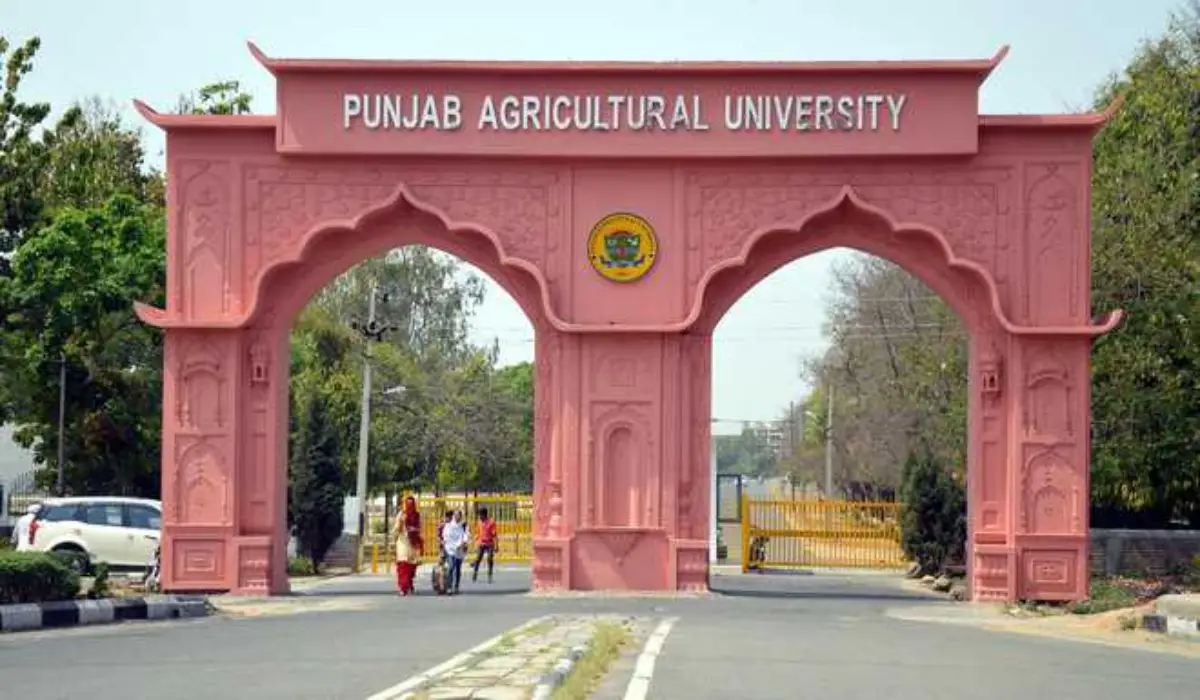Listing Overview
Punjab Agricultural University (PAU) in Ludhiana is one of the leading agricultural universities in India, known for its pivotal role in the Green Revolution of the 1960s. PAU has been at the forefront of agricultural education, research, and extension services, contributing significantly to the improvement of agricultural practices and productivity in Punjab and across India.
Courses Offered at Punjab Agricultural University (PAU)
PAU offers a wide range of undergraduate, postgraduate, and doctoral programs across various disciplines of agriculture and allied sciences. These programs are designed to equip students with the latest knowledge and skills in agricultural science and technology. Key programs include:
Undergraduate Programs:
- B.Sc. Agriculture
- B.Sc. Horticulture
- B.Sc. Forestry
- B.Tech. Agricultural Engineering
Postgraduate Programs:
- M.Sc. Specializations:
- Agronomy
- Entomology
- Plant Pathology
- Soil Science
- Horticulture
- Forestry
- Agricultural Economics
- M.Tech. Agricultural Engineering
Doctoral Programs:
- Ph.D. Specializations:
- Agronomy
- Entomology
- Plant Breeding
- Agricultural Biotechnology, and more.
Explore the complete list of programs and their details on the official PAU website.
Admission Process for 2025
Admission to PAU is competitive and based on merit. The university conducts its own entrance tests for most programs. Here’s a step-by-step guide to the admission process for the 2025 academic year:
- Application Form Submission:
- Visit the PAU website and fill out the application form online.
- Ensure all necessary documents, including academic transcripts, are uploaded.
- Entrance Test (if applicable):
- Candidates must appear for PAU’s entrance test, which assesses subject-specific knowledge and aptitude.
- Counseling and Merit List:
- Shortlisted candidates are invited for counseling sessions based on their entrance test scores.
- Seat allocation is done during counseling.
For exact dates and updates, stay tuned to the PAU Admissions Portal.
Eligibility Criteria
Eligibility criteria vary by program. Below are the general requirements:
Undergraduate Programs:
- Completion of 10+2 with Physics, Chemistry, and Biology/Mathematics/Agriculture from a recognized board.
Postgraduate Programs:
- A bachelor's degree in the relevant field with a minimum percentage or CGPA as specified by the university.
Doctoral Programs:
- A relevant master’s degree with minimum marks as outlined in the program details.
Detailed eligibility criteria for each program are available on the PAU website.
Fee Structure
The fee structure at PAU varies depending on the course and level of study. Below is an indicative range:
- Undergraduate Programs: INR 50,000 – 75,000 per year
- Postgraduate Programs: INR 70,000 – 1,00,000 per year
- Doctoral Programs: INR 80,000 – 1,20,000 per year
Scholarships and financial aid are available for meritorious and economically disadvantaged students. For the latest fee details, visit the Fee Structure Page.
Why Choose Punjab Agricultural University (PAU)?
PAU stands out for its excellence in agricultural education and research. Here are some key reasons to consider PAU:
- Legacy of Innovation: Pioneered the Green Revolution in India.
- Cutting-edge Research: World-class research in agricultural sciences.
- Career Opportunities: High placement rates with leading agricultural firms.
- State-of-the-art Facilities: Modern labs, research centers, and agricultural fields for practical training.
- Global Collaborations: Partnerships with international universities for research and exchange programs.
Rankings and Achievements
PAU consistently ranks among the top agricultural universities in India. It has received accolades for:
- High-impact research in crop improvement and sustainable agriculture.
- Award-winning faculty and researchers.
- Strong emphasis on community extension services, benefiting farmers across Punjab.
Check rankings from trusted platforms like the National Institutional Ranking Framework (NIRF).
Scholarships and Financial Aid
PAU offers several scholarships to support students, including:
- Merit-based scholarships for top-performing students.
- Need-based financial assistance for economically disadvantaged candidates.
- Government-sponsored scholarships.
For detailed information on scholarships, visit the Scholarships Page.
Career Opportunities After PAU
Graduates from PAU excel in various career paths, including:
- Agricultural Research: Work as scientists or researchers in public and private institutions.
- Government Services: Employment in agricultural departments and rural development projects.
- Agribusiness: Roles in food processing, seed companies, and export firms.
- Entrepreneurship: Start your own ventures in organic farming, agritech, or horticulture.
FAQs
- What is the application deadline for PAU 2024 admissions?
- The exact dates will be announced on the PAU website. Admissions typically begin in spring and end in early summer.
- Are there preparation resources for PAU entrance exams?
- Yes, PAU provides a syllabus and sample papers for entrance tests on its official website.
- Does PAU offer hostel facilities?
- Yes, PAU has well-maintained hostels for both male and female students.
Conclusion
Punjab Agricultural University (PAU), Ludhiana, is a beacon of excellence in agricultural education, research, and extension services. Whether you aspire to innovate in agricultural science, contribute to sustainable farming, or become a leader in agribusiness, PAU provides the platform for success.
Ready to take the first step? Visit the PAU Admissions Portal today to explore your opportunities!

